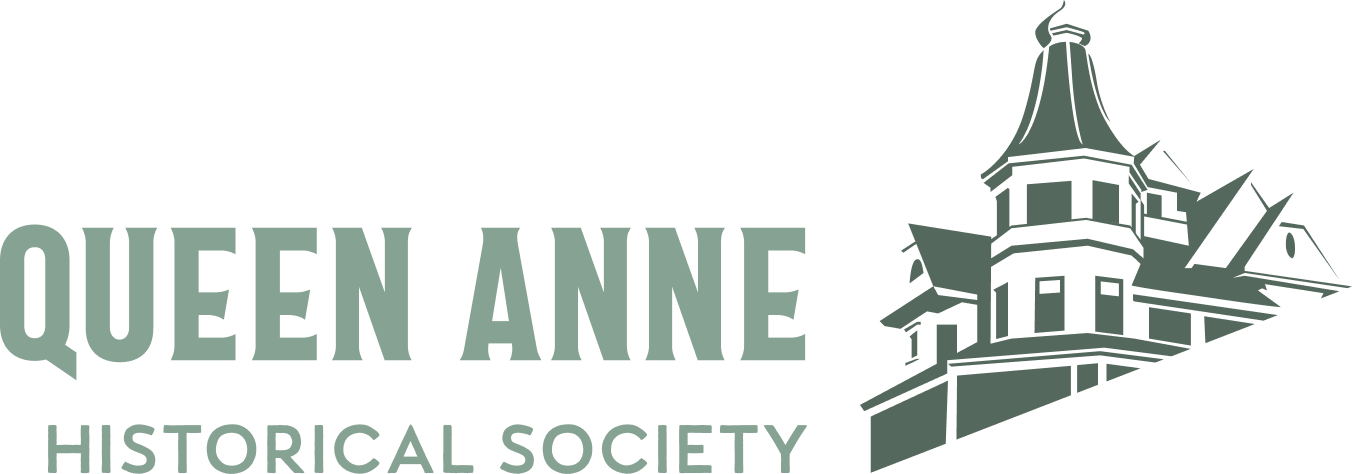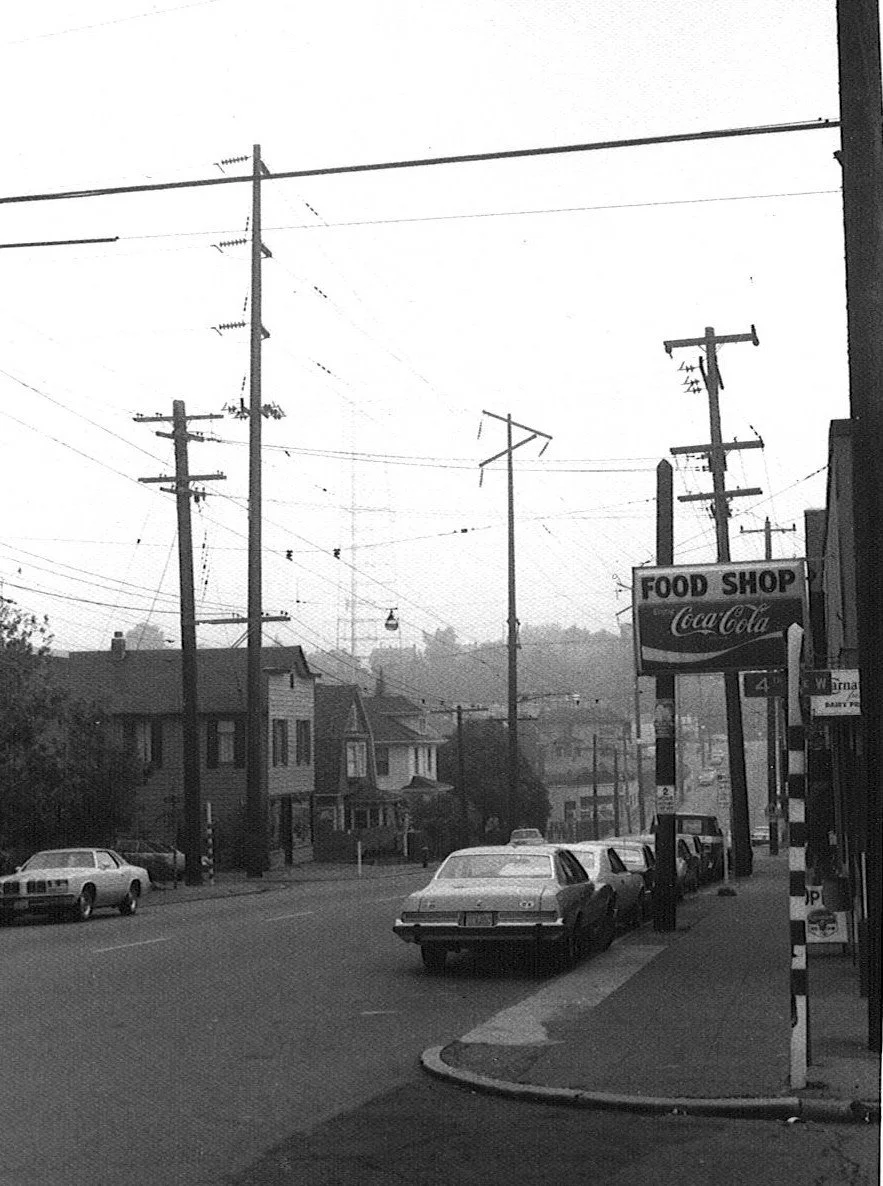The Nolan Olson Collection
Looking east on W. Galer from 4th Ave. W. Photo by Nolan Olson, ca. 1975. Nolan Olson Collection QAHS
The gift of historic photographs to the Archives of the Queen Anne Historical Society has become increasingly rare. Leanne Olson, a former board member, recently donated a collection of photographs her brother Nolan took over the years. Nolan grew up in the Midwest and on Lake Washington’s eastside, but he lived most of his life on Queen Anne. He passed away in 2016.
I’ve chosen to write about this photograph of Galer Street looking east from 4th Avenue W.[i] for several reasons.
The first is that the Nolan Olson Collection is the first one to come into our Archives in a very long time. I want to encourage people who live or who have lived in our Queen Anne neighborhood to consider donating to the society their images of recent times and old. We are the only organization in Seattle interested in collecting information and images about Queen Anne and the only one capable of protecting and storing them in perpetuity.
A second reason, really a corollary of the first, is that there is nothing particularly special about this image. Taken on a dark and apparently cloudy day, the intended subject of Nolan’s picture remains unknown. The photo shows us that the now remodeled house where Caffè Fiorè sits—a bit off center on the north side of the odd intersection—has long served a commercial purpose. We’d have to do a bit of research to figure out if it was in fact built to be a store, but given the prevalence of stores along our old streetcar routes, I bet that the windows on Galer and the storefront they announce were always there. I love that Nolan captured a “No Parking” sign of which none remain and the distinctive lamp hanging over the middle of the street. Of course, the ugly cars (I didn’t like them even then) provide dated curiosities, while the bevy of overhead wires suggest that the telephone company building (not shown) across the street strongly influenced the look and feel of this neighborhood. I am also fond of the two Carnation Milk panels out in front of the store, for the Carnation story is important in Seattle history and more recently in Queen Anne’s.
You’d never guess though that the real reason this plain photograph thrills me is the super conventional “Food Shop” sign. The Coca Cola Company probably provided it at no cost to owner Don Nelsen, but he probably had to pay for hanging it. There is more though to my interest than that, for we know lots about the store (now Top Pot Doughnuts) thanks to the clever sleuthing of two Queen Anne Historical Society authors.
What Jan Hadley and Alicia Arter revealed in their 2016 series of articles about the history of Queen Anne grocery stores makes Nolan’s photograph so important. Alicia wrote the story linked here about Don Nelsen and his grocery store. The sign in Nolan Olson’s photograph proves its accuracy. Alicia’s story is heartwarming perhaps because she shopped there as a kid while attending St. Anne School. Speaking historically, it is delightful to read in Alicia’s story that the Nelsen shop sold Pepsi to neighborhood kids when they stopped by for snacks after school. As the Coca Cola sign suggests though, Pepsi wasn’t the only soft drink in the Nelsen store. From a scholarly point of view, the the Olson Collection image challenges information about the store that Alicia’s memories and in-depth scholarship provided. The Coke sign proves that Mr. Nelsen probably sold both Pepsi and Coke. It also demonstrates that we need many sources as we seek to document the history of Queen Anne accurately.
Nolan Olson’s photographic legacy documents neighborhood history. It proves the value of collecting and gathering the photographs you may have in your attic, garage, or forgotten closet. Consisting of photographs on paper and slides, the Olson collection is historic in its own right. It shouldn’t prevent you from sharing historic photographs that you may store on a hard or thumb drive or in the ephemeral cloud. Please let us know if you have a collection you like to share. You can reach us at info@qahistory.org. Our archivist would be thrilled to follow up with you.
[i] I am sure of the location since Nolan captured the street sign in his photograph. It’s blocked by the stop sign but readable.

